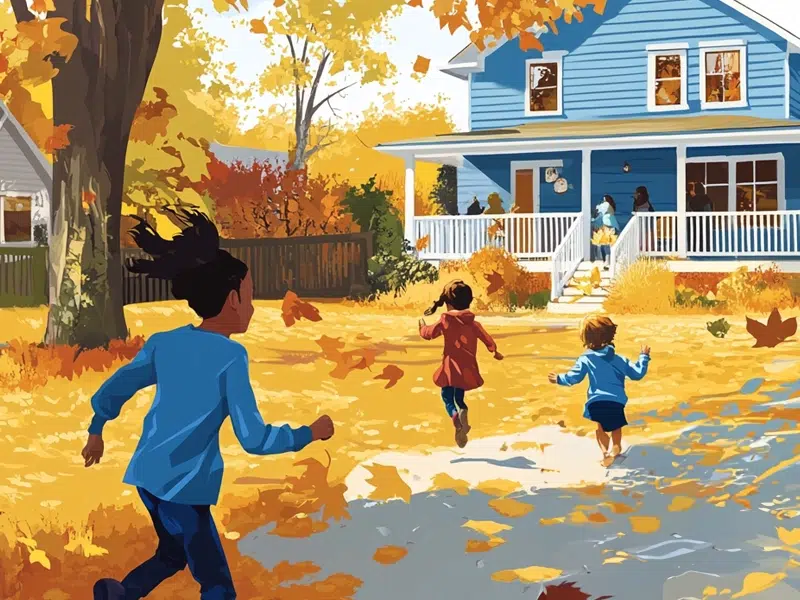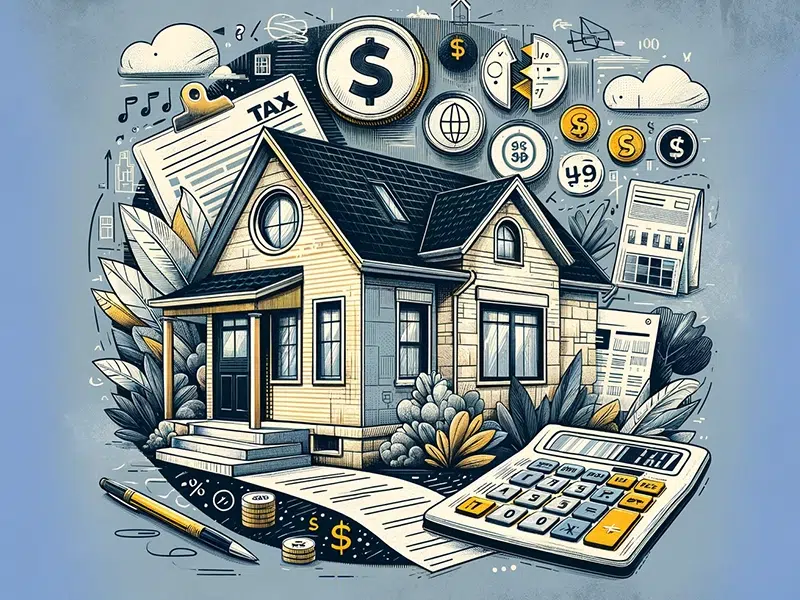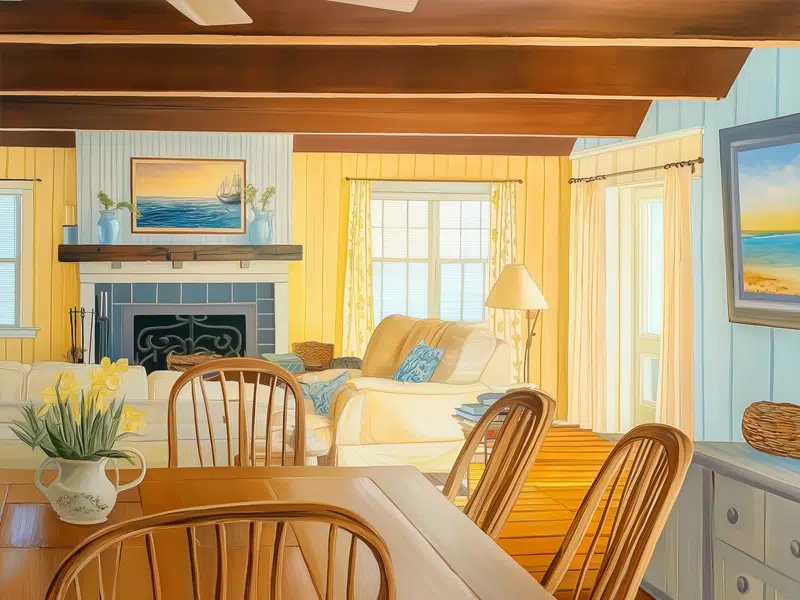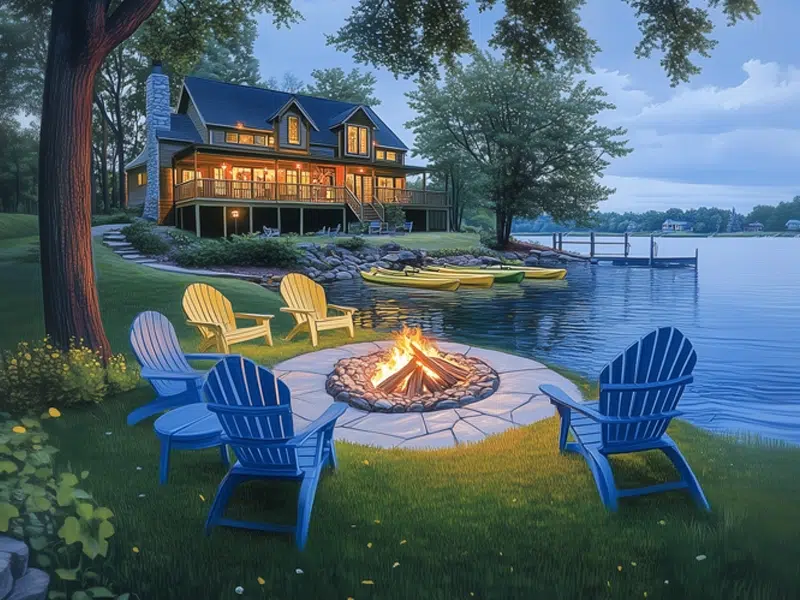How to Navigate Constantly Changing Airbnb Laws in Michigan
Michigan’s short-term rental industry is a dynamic part of the state’s tourism sector, with popular destinations from urban centers like Detroit to scenic areas along the Great Lakes. As short-term rentals grow in popularity, state and local governments are working to establish clear guidelines to address community concerns and maintain a balance between tourism benefits and local housing needs.
Michigan has seen a range of regulatory efforts, from proposed statewide legislation to city-specific ordinances aimed at managing rental density and preserving neighborhood character.
For hosts, understanding and keeping up with these evolving regulations is essential to ensure compliance and continued success. If you have questions about short-term rentals in Michigan we are experts in the vacation rental industry. Call 888-631-6680 today.
Schedule a quick 15-minute consultation to ensure your coverage aligns with the current regulations and risks of your short-term rental.
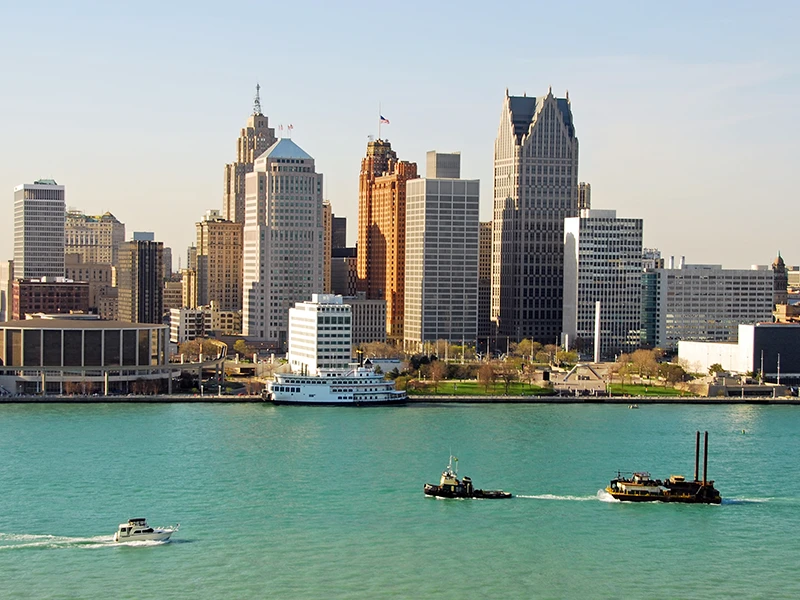
Ann Arbor, Michigan, Short-Term Rental Laws & Regulations
Limited Airbnb Laws and Regulations – Create Friction Between Officials and STR Hosts
Rental guests visit Ann Arbor for numerous reasons, such as sporting, academic, and cultural events. With this constant flow of tourists, there is an ever-growing market for platforms such as Airbnb and Vrbo. Because of this influx in tourism, city officials grew concerned that short-term rentals may pose a threat to the hospitality industry. Officials quickly considered regulating short-term rental policies and changing Airbnb laws and regulations in Ann Arbor. In September 2020, the city approved an ordinance requiring the annual registration of short-term rentals within the city to make sure that they are compliant with the Ann Arbor city code.
Although this ordinance was passed, many city residents feel as if short-term rental regulations are not strict enough and want regulations enforced for the sake of the community. As decisions are still up in the air, residents look towards House Bill 4722 for clarification of Airbnb laws and short-term rental regulations.
House Bill 4722 has four main components:
- It would bar local governments from enacting or enforcing ordinances that ban short-term rentals;
- It would place a cap on the total number of short-term rentals to 30 percent of all residential units;
- Local governments could limit an owner or ownership group to two short-term rental properties;
- Local governments could regulate and inspect short-term rental units for noise, advertising, traffic, or other disruptive conditions.
As tourism continues to swell in Ann Arbor after the COVID-19 pandemic, discussions of increased zoning restrictions, tax ordinances, and guest limits continue to circulate within the community. Short-term rental hosts should continue looking for updates on House Bill 4722 to see if any further regulations are passed or enforced.
Burtchville, Michigan, Airbnb Requirements
Minimum Day Requirements of Short-Term Rental Airbnb Laws Enforced
Burtchville Township in Michigan held a hearing on October 3rd regarding Airbnb vacation rentals in the area. Short-term rentals are currently allowed, but they will be heavily regulated after numerous complaints were received by the county, notably from residents in the Lake Huron area.
The regulations for property owners that were discussed include permit requirements, a limit of 7 to 30-day stays, guest limitations, and restrictions on late-night activities.
Short-term rental hosts must also follow the requirements listed below:
- A short-term rental is a rental of residential property for a minimum of seven (7) days and less than thirty (30) days. Short-term rentals of six (6) days or less shall not be permitted.
- The property owner shall designate a property manager, who shall reside within 25 miles of the property and provide 24 hours a day, seven days a week, contact information for the manager during all times the premises are rented.
- The property owner shall provide proof of liability insurance covering the short-term rental activity.
Clay Township, Michigan, Vacation Rental Rules
Regulates Airbnb Laws for Short-Term Rentals Due to Previous Local Disturbances
The Clay Township Board of Trustees adopted a short-term rental ordinance no. 144 to regulate vacation rental properties in August of 2021.
General Short-Term Rental Regulations in Clay Township
All vacation rentals shall meet the following standards:
- Mandatory Registration: All short-term vacation rentals must be registered with Clay Township. Operating a rental without registration is prohibited. A registration fee, set by the Township Board, will apply.
- Registration Term: Registrations are valid for two years. Renewals must be completed before expiration, and any property ownership change during this period requires re-registration.
- Occupancy and Zoning Permits: Proof of a valid occupancy permit and a Zoning Compliance Permit from the Building Department is required for registration.
- Insurance Requirements: Owners must provide proof of homeowner’s insurance and personal liability insurance covering renters. Note: Homeowner’s policies have known limitations for short-term rentals; it’s recommended to align insurance with rental-specific risks.
- Local Agent: A local agent must be designated to manage the rental if the owner is unavailable. Any changes to the agent’s contact information must be updated with the Township within 14 days. The agent should be reachable for neighbors or authorities to address complaints.
- Safety and Compliance Certifications: Each bedroom must have a working smoke alarm, and each finished floor must have a carbon monoxide detector, fire extinguisher, and exit signs as required by the Building Department. These devices must be maintained in good working order.
- Occupancy Limits: The maximum number of occupants is based on bedroom count (as defined in Section 3), plus two additional occupants per finished floor. Rentals are limited to a maximum of four bedrooms.
- Rental Term Limits: The maximum rental period for any single stay is 180 days.
- On-Site Posting: Each rental must display, near the main entrance, a summary of relevant local ordinances and a notice informing renters they are in a residential neighborhood where neighbors may not be vacationing.
- Existing Rentals Compliance: Existing rentals have six months from the ordinance’s adoption date to complete registration. Rentals not registered within this timeframe will be in violation.
- Inspection Access: Owners must consent to property inspections by the Township with reasonable notice.
- Parking Requirements: All parking must be on-site, within a garage or on a paved, gravel, or stone driveway. Owners must submit a plot or site plan showing approved parking locations.
- Violations and Penalties: Violations can result in fines up to $500 or 90 days in jail per day of non-compliance. Three violations within 12 months may lead to registration revocation, barring re-registration for one year.
Detroit, Michigan, Airbnb Laws
Frustration Continues for Short-Term Airbnb Rental Hosts
Detroit residents and short-term rental hosts alike have been waiting for updates to a short-term rental ordinance that was passed in 2019. This ordinance discusses the following regulations and more:
- Residency requirement: Any property used as a short-term rental must be the owner’s principal residence.
- Registration required: Any short-term rental must be registered with the Buildings, Safety Engineering, and Environmental Department.
- Limitations on groups: A host may not rent to more than one group of guests under more than one reservation at any given time.
Since this ordinance was enforced in late 2019, hosts have been waiting for updates on House Bill 4722. When the bill progresses pass the Senate, both hosts and guests will have more clarification on what updated regulations look like.
Manistee, Michigan, STR Regulations
Considering New Ordinances and Further Regulating Short-Term Airbnb Laws
The city of Manistee continues to debate if they want to further regulate short-term rentals with the use of licensing applications. City officials have discussed the possibility of limiting short-term rentals and strengthening regulations within the community. Although there have been various discussions since 2020 surrounding the expansion of short-term Airbnb rentals, no further action has been taken. The restrictions from the 2020 council meeting are still the standard regulations today in Manistee.
At the council meeting in October of 2020, the City discussed the following items outlining restrictions on short-term rentals:
- Add short-term rentals to the City’s rental inspection program;
- Require short-term rentals to register as a business or create a separate license and fee program with the option to revoke licenses based on complaints or the property’s appearance;
- Allow condo associations to decide whether they will allow short-term rentals; and
- Limit the number of short-term rentals in residential districts, but not in commercial districts or the Manistee Downtown Development Authority district. The limit would be informed by the number of short-term rentals currently in the city.
Neighboring Filer Township receives Chapter 35 ordinance
Nearby in Filer Township, short-term rental regulations are now active, with the Chapter 35 Ordinance taking effect on January 7th, 2020. Airbnb hosts must secure a short-term rental license ($500 and valid for one year), undergo a property inspection, and supply their or their property manager’s 24-hour contact near the main entrance of the home.
Ottawa, Michigan, Regulations for Airbnbs
Short-term Rental Ban Lifted
On Friday, Dec. 1. 2023, a judge sided with the Park Township Neighbors that a ban on short-term rentals (STRs) could not be enforced. Although this hearing was a major win for STR hosts, the judge emphasized that this is just the beginning of the court process, and that there are more hearings to come. Until the next court hearing, in 2024, the ban on short-term rentals is lifted. To read the full article visit the M Live Website.
Current regulations in place:
- Registration: To register your STR, visit the Park Township Website and register for free.
- Permit: Applications can be submitted by email to str_lcd@ottawa.ca
Traverse City, Michigan, STR Laws
Short-Term Airbnb Regulations in the World’s Cherry Capital
Traverse City, Michigan, has clearly laid out short-term rental regulations for hosts within the city. Prior to listing your property online, hosts must submit a short-term rental application and obtain a short-term rental license from the city. The application must include the following details:
- Zoning: The vacation home rental is occupied and operated in zoning districts as authorized by the Zoning Code of the City of Traverse City.
- Site Plan: Submit a site plan demonstrating compliance with zoning provisions.
- Fire Escape: A fire escape plan shall be developed and graphically displayed in each guest room.
- Insurance: Proof of $1M liability insurance required by the City Clerk. Note: If you’re looking for a recommendation for insurance, Proper Insurance is the nation’s comprehensive short-term rental provider, trusted by short-term rental owners, property managers and industry leaders, which meets or exceeds regulation requirements.
- Noise Ordinance: Vacation home rental operators must post the noise ordinance hours and the consumer fireworks ordinance in a conspicuous location.
- Inspection: Schedule an inspection with the Fire Marshal to ensure the property meets safety standards. Complete a self-inspection checklist as part of the license application process.
Verify Your Short-Term Vacation Rental Insurance Today
Interested in a policy to protect you and your business from liability and damage claims? Proper Insurance is the nation’s leading short-term rental insurance provider protecting homes in all 50 states, replacing inadequate Homeowners/Landlord policies.
Their comprehensive coverage meets or exceeds standard short-term rental requirements with $1M Commercial Liability (CGL) and unmatched protection for your property and revenue. Additional custom coverages include guest-caused theft/damage, amenity liability (bikes, kayaks, hot tub, etc.), bed bugs, fleas, squatters, and more.
Please note: The information provided is intended as a guide and may not be comprehensive or current. Regulations may change and could vary by area or situation. Always consult local authorities or a legal professional to ensure you have the most accurate information for your short-term rental property. Given that STR laws and regulations are always changing, we rely on our community to keep us informed. If you have any additional information or updates relating to our posts, let us know at info@proper.insure!
